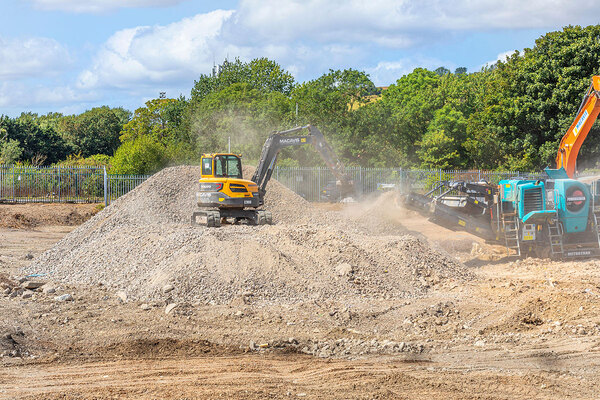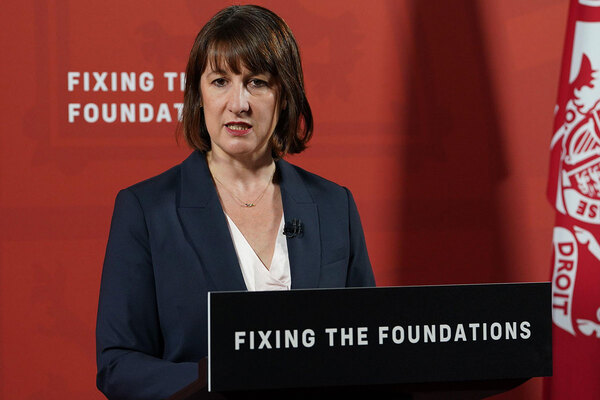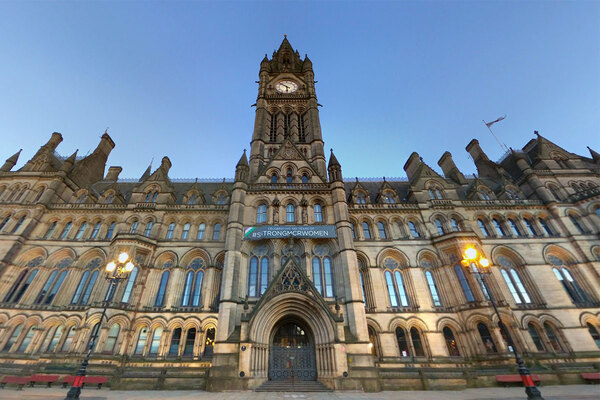You are viewing 1 of your 1 free articles
The government needs to step up and get serious about social housebuilding
As the Labour government passes its first 100 days in office, Helen Walsham, deputy chief executive of Flagship Group, reflects on its progress in addressing the housing crisis
The new government has made bold promises on housebuilding, but now it’s time to turn those words into action.
We’ve heard the commitment to build 1.5 million homes over the next five years – a huge and necessary target, but one that raises more questions than answers. The will is there, but will alone won’t put roofs over people’s heads. The government must put its money where its mouth is and tackle the obstacles head-on.
One of Labour’s key changes has been to reintroduce compulsory housebuilding targets. We’ve long been familiar with terms such as green belt and brownfield, and now it’s keen to utilise ‘grey belt’ land, too. This is positive progress – diversifying land use is a smart way to address the shortage of building sites and it opens up new possibilities for much-needed homes.
But the biggest roadblock isn’t just finding the land – it’s the planning process. This is an area that has long frustrated developers and housing associations alike. Navigating planning permission can feel like trying to run a marathon through a swamp. The bureaucracy is suffocating. Developers are required to fill out hundreds of forms just to get on site.
The government has pledged to recruit 300 new planning officers to address this, which is a step in the right direction. But these changes can’t come soon enough. Housebuilding doesn’t happen overnight, and if we’re to meet the 1.5 million target, the gears need to turn much faster.
“Navigating planning permission can feel like trying to run a marathon through a swamp. The bureaucracy is suffocating”
A focus on affordable and social housing has to be central to any housebuilding push.
The word ‘affordable’ can be a bit of a misnomer in areas such as Cambridge, where market rents are astronomical. Even at 80% of market rent, homes can still be out of reach for many. That’s why the emphasis on social rent – typically around 60% of market rent – is so important. People don’t just need housing, they need homes they can afford to live in.
There’s also been talk of ending Right to Buy. In the past, too many social homes have been sold off without being replaced, deepening the housing crisis. Just as you can’t fill a bathtub without a plug, stopping this cycle is vital if we’re to keep up with demand for affordable homes.
Then there’s the Renters’ Reform Bill, which aims to ban no-fault evictions and improve the quality of housing for renters. If you’re a good landlord, as many housing associations strive to be, these changes won’t feel radical, they’re simply about doing what’s right. But some private landlords, which have often operated with far less regulation, will need to step up. The government needs to follow through on these reforms to protect tenants and raise standards in the private rental sector.
Labour’s warm words on solving the housing crisis won’t mean much without committing serious resources to making it happen. We need more funding to accelerate housebuilding and we need to cut the red tape that’s holding it back. Grants used to play a bigger role in helping housing associations build homes, but today that funding has shrunk. Bringing back substantial grants would be a game-changer.
“Labour’s warm words on solving the housing crisis won’t mean much without committing serious resources to making it happen”
We also need to confront the opposition that often slows down or blocks new developments. Nimby thinking remains a significant barrier. Communities need to consider the individuals who will benefit from new homes – the young couple who can’t afford to get on the housing ladder due to sky-high prices, the single mum stuck in temporary accommodation, the retiree looking to downsize but can’t find anywhere suitable.
The government has shown a willingness to be bold in other areas, so we can only hope they’ll apply the same determination to housing.
The vision is there, the ideas are promising, but the government needs to follow through. Building 1.5 million homes is no small feat, but it is achievable with the right focus, funding and planning reforms. Now is the time for action.
Helen Walsham, deputy chief executive, Flagship Group
Sign up for our development and finance newsletter
Already have an account? Click here to manage your newsletters













